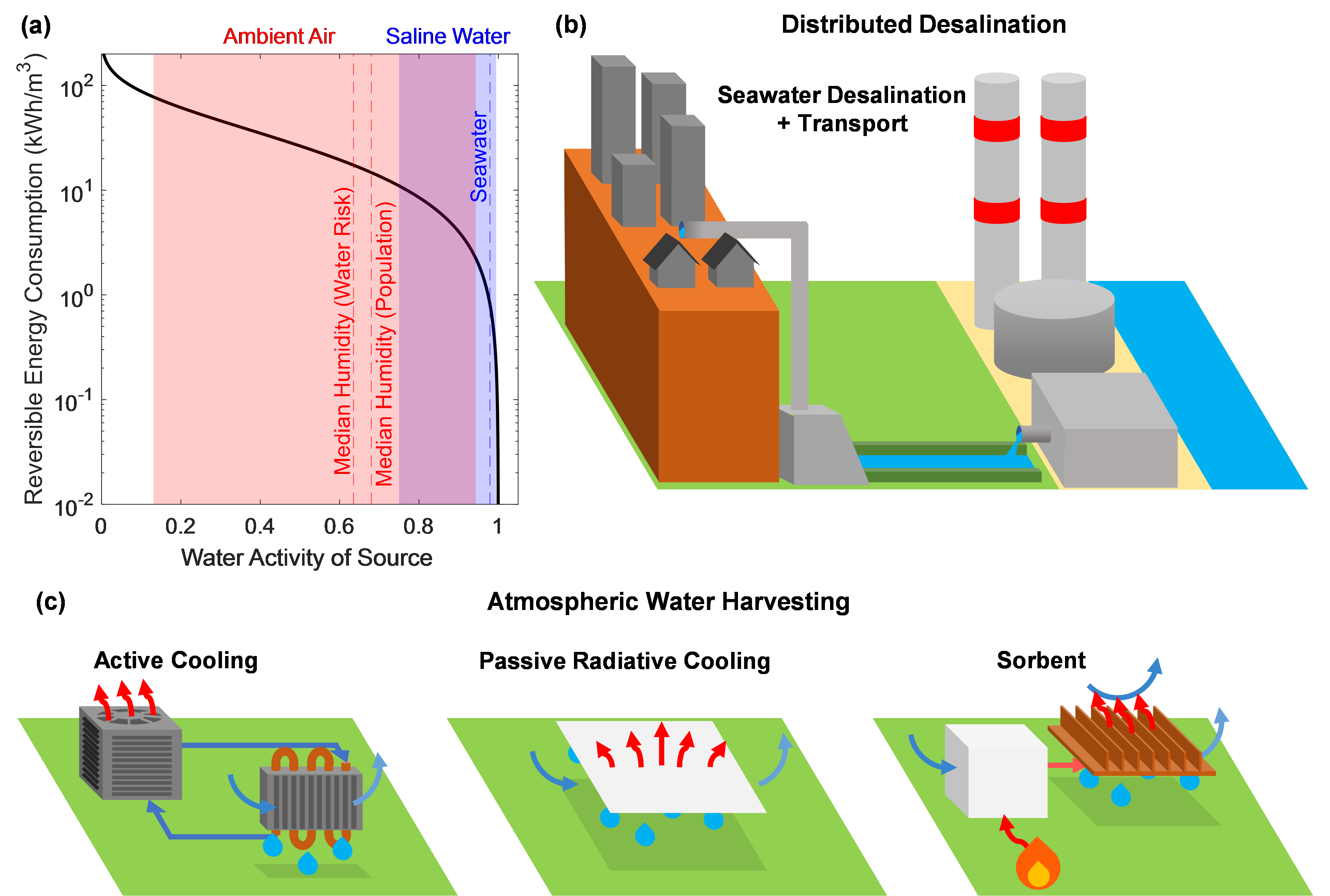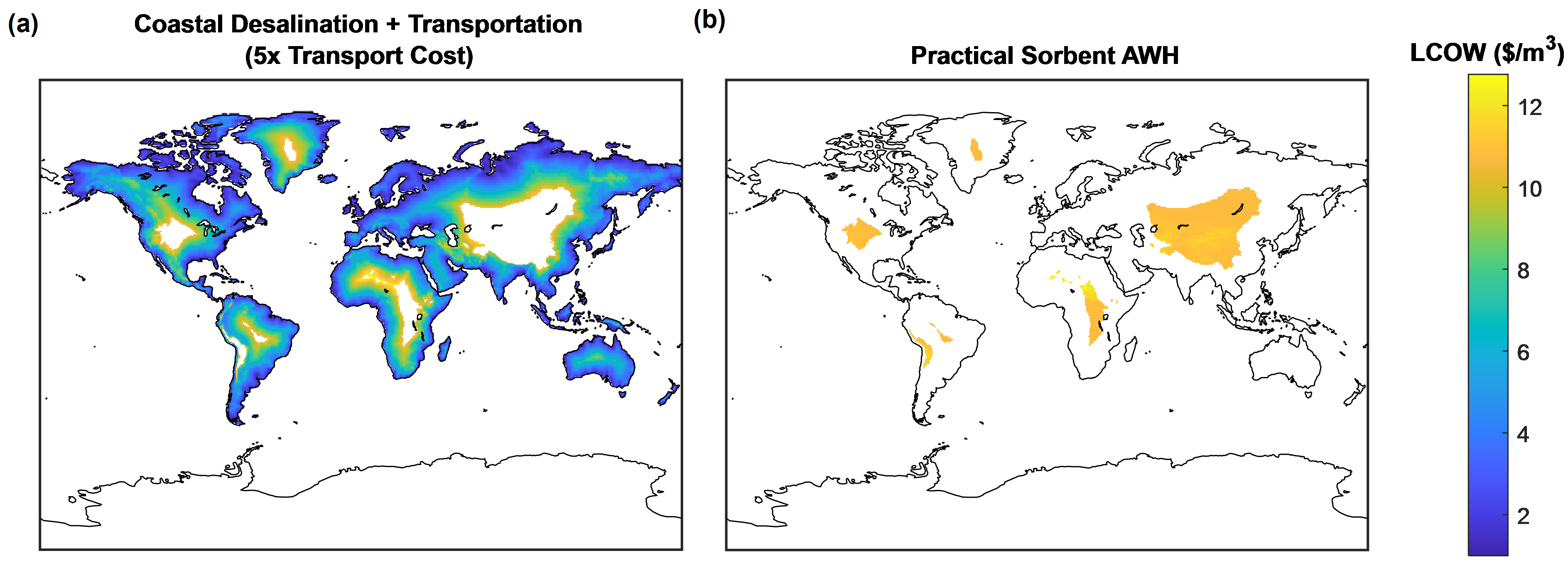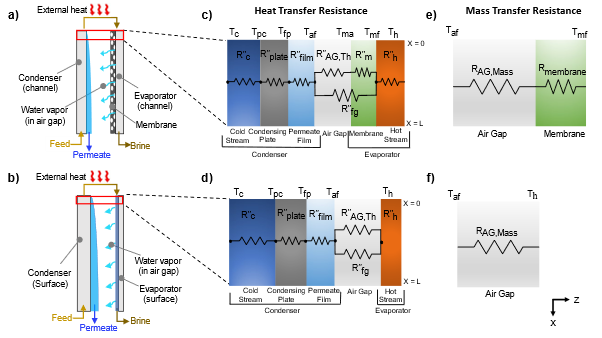Desalination and Atmospheric Water Harvesting
Research Description:
With water scarcity intensifying around the globe, the production of fresh water is becoming more and more important. Desalination is a well-established method of producing fresh water, but emerging trends, such as inland desalination and zero-liquid discharge, require further research. Our research delves into air gap diffusion distillation (AGDD) as a method of brine concentration, and the benefits it could potentially have over the more mature air gap membrane distillation (AGMD).
Atmospheric water harvesting (AWH) is another method of producing fresh water, but because it is separating water from air, which has a far lower water activity than seawater, it necessarily requires more energy than desalination. As such, we have investigated the cost of AWH and provided guidelines for the materials, systems, and energy sources requires for AWH to reach cost parity with desalination. Our LCST hydrogel dehumidification cycle can also double as an atmospheric water harvester with high exergetic efficiency, due to the first-order nature of the LCST hydrogel phase separation.
Selected Publications:
J. D. Kocher and A. K. Menon; “Addressing global water stress using desalination and atmospheric water harvesting: a thermodynamic and technoeconomic perspective.” Energy & Environmental Science 16 (November 8, 2023): 4983. https://doi.org/10.1039/D3EE02916F.
W. P. Parker, J. D. Kocher, and A. K. Menon; “Brine Concentration using Air Gap Diffusion Distillation: A Performance Model and Cost Comparison with Membrane Distillation for High Salinity Desalination.” Desalination 580 (July 1, 2024): 117560. https://doi.org/10.1016/j.desal.2024.117560.
J. D. Kocher and A. K. Menon; “Pathways for Atmospheric Water Harvesting to Reach Cost Parity with Distributed Desalination.” ASME 2023 Energy Sustainability Conference, Washington, D.C. (July 2023). https://dx.doi.org/10.1115/ES2023-107067
Research funded by the Innovation in Buildings Graduate Research Fellowship
The IBUILD Fellowship is made possible by:
- DOE-Building Technology Office (BTO)
- Oak Ridge Institute for Science and Education (ORISE)
- Oak Ridge Associated Universities (ORAU)



